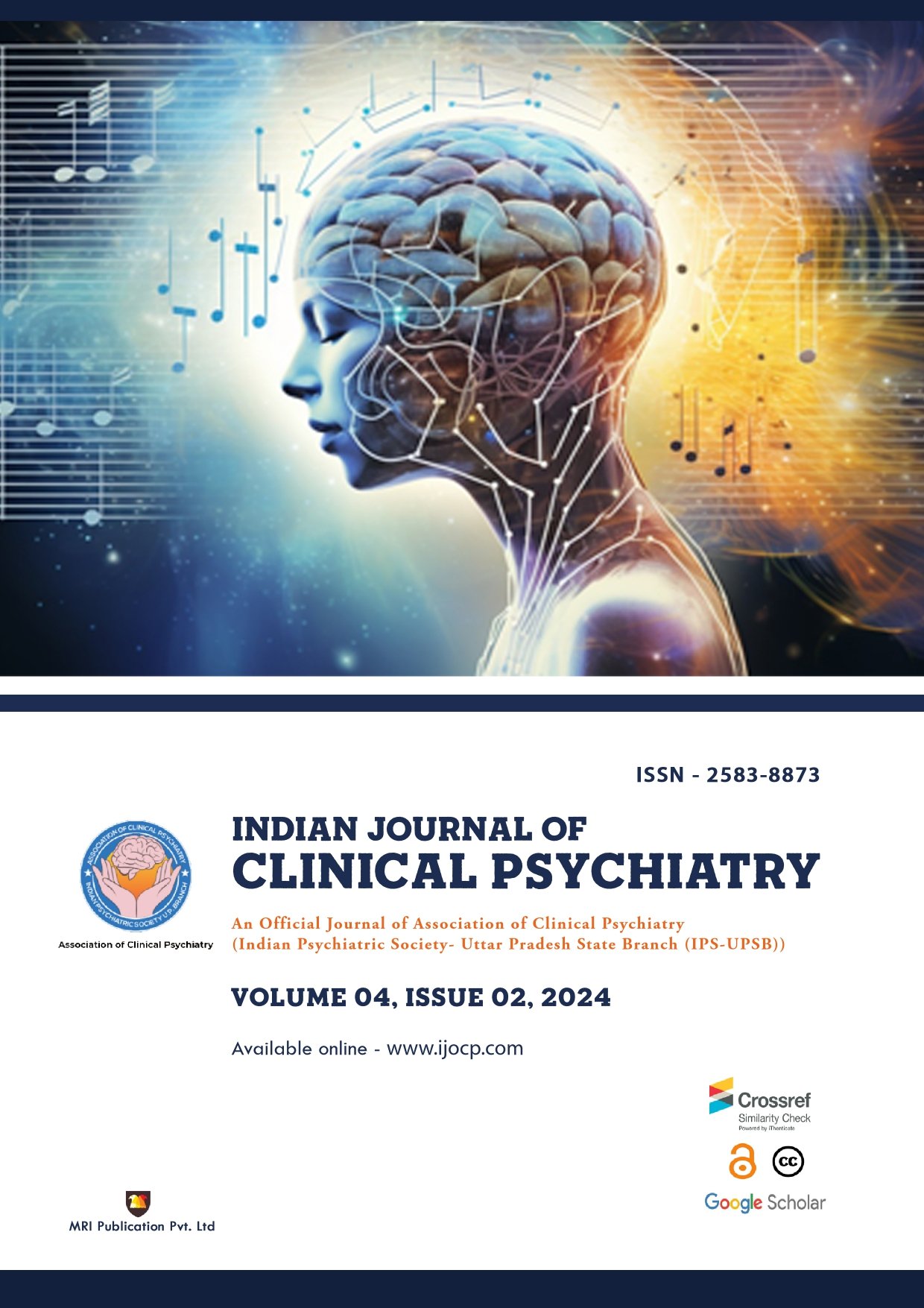Publication Ethics
Publication Ethics for Journal IJCP
The JIndian Journal of Clinical Pschaitry (IJCP) is committed to upholding high ethical standards in all aspects of the publication process. The journal expects authors, reviewers, and editors to adhere to the following guidelines to ensure the integrity and credibility of the published research.
1. Author Responsibilities:
1.1. Originality and Plagiarism: Authors must ensure that their work is original and has not been published elsewhere. Proper citations and references should be provided for any previously published work or content used.
1.2. Authorship: All individuals who have made significant contributions to the research should be listed as authors. It is important to obtain the consent of all co-authors and acknowledge their contributions.
1.3. Data Accuracy: Authors should ensure the accuracy of their data and provide sufficient details to allow others to replicate the study. Any potential errors or inaccuracies should be promptly reported to the journal editor.
1.4. Multiple Submissions: Manuscripts submitted to IJCP should not be under consideration by any other journal or conference simultaneously. If a related manuscript is submitted elsewhere, this must be disclosed to the editor during the submission process.
1.5. Conflict of Interest: Authors must disclose any potential conflicts of interest that could influence the research or its interpretation. This includes financial, personal, or professional relationships that may be perceived as affecting the objectivity of the work.
1.6. Acknowledgment of Sources: Authors should appropriately cite and acknowledge the contributions of others, including ideas, data, or words from other publications. Proper permissions should be obtained for any copyrighted material used.
2. Reviewer Responsibilities:
2.1. Objectivity: Reviewers should conduct the review process objectively and provide constructive and unbiased feedback on the manuscript. Personal or professional biases should not influence their evaluations.
2.2. Confidentiality: Reviewers must maintain the confidentiality of the manuscript and not disclose any details about it to others without permission from the journal.
2.3. Timeliness: Reviewers should complete their reviews in a timely manner and inform the editor if they are unable to meet the assigned deadline.
2.4. Conflict of Interest: Reviewers should decline to review manuscripts if they have a conflict of interest due to competitive, collaborative, or other relationships with the authors. Any potential conflicts should be disclosed to the editor.
3. Editor Responsibilities:
3.1. Fairness and Impartiality: Editors should evaluate manuscripts based on their scientific merit and ensure fair and unbiased treatment of all submissions, regardless of the authors' gender, race, ethnicity, religion, or country of origin.
3.2. Confidentiality: Editors must keep all information related to the submitted manuscripts confidential and should not disclose any details to unauthorized individuals.
3.3. Peer Review Process: Editors should ensure that a rigorous and transparent peer review process is followed. They should select qualified reviewers who can provide an objective assessment of the manuscript.
3.4. Disclosure and Conflicts of Interest: Editors should disclose any conflicts of interest that could affect their impartiality in handling a manuscript. If an editor has a personal or professional relationship with an author, they should recuse themselves from the review process and assign another editor to handle the manuscript.
3.5. Retraction and Corrections: Editors should facilitate the retraction or correction of published articles if errors or misconduct are discovered. They should follow the Committee on Publication Ethics (COPE) guidelines in handling such cases.
4. Ethical Oversight:
4.1. Compliance with Guidelines: The journal will ensure compliance with established ethical guidelines, including those of the Committee on Publication Ethics



